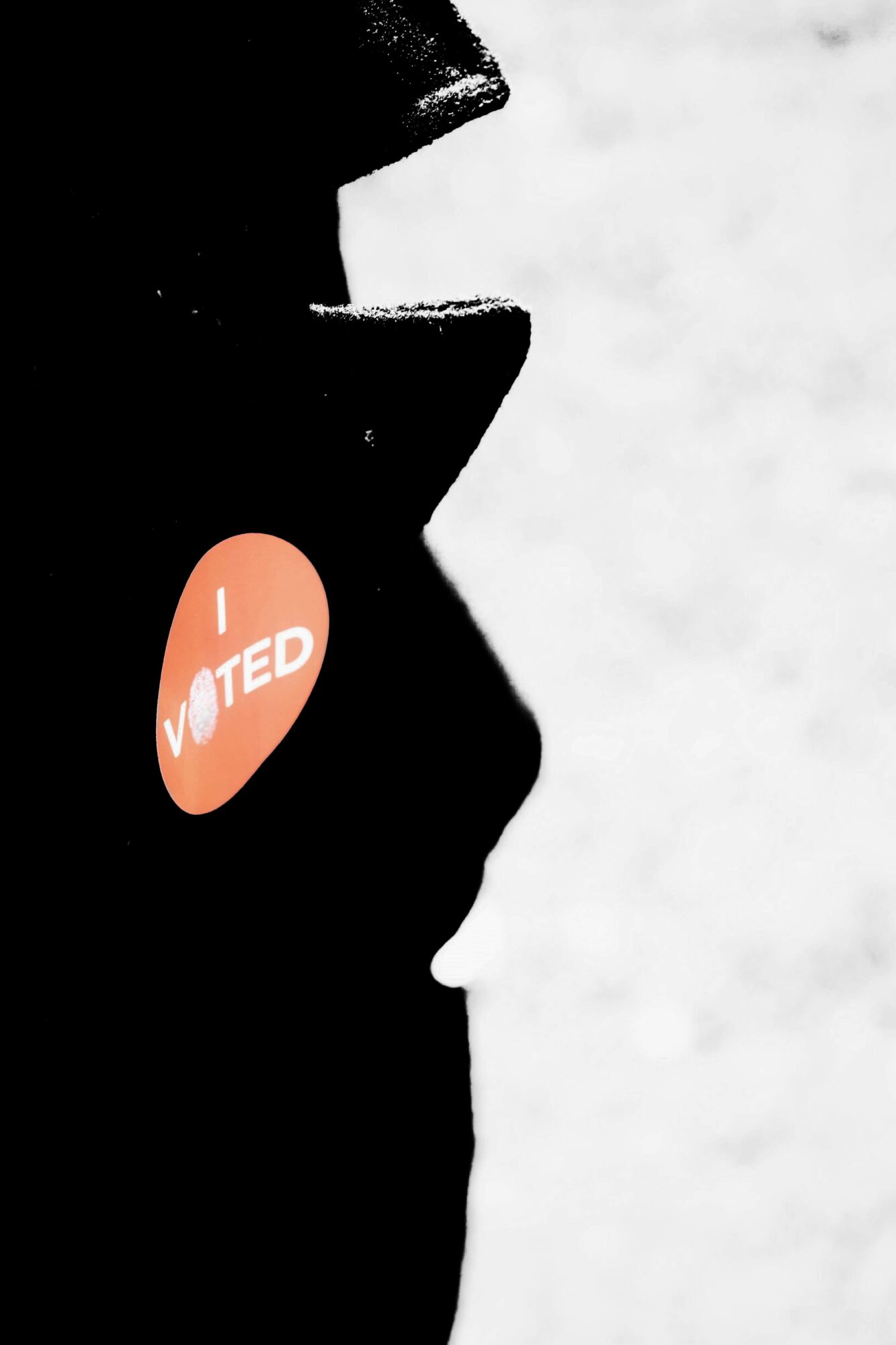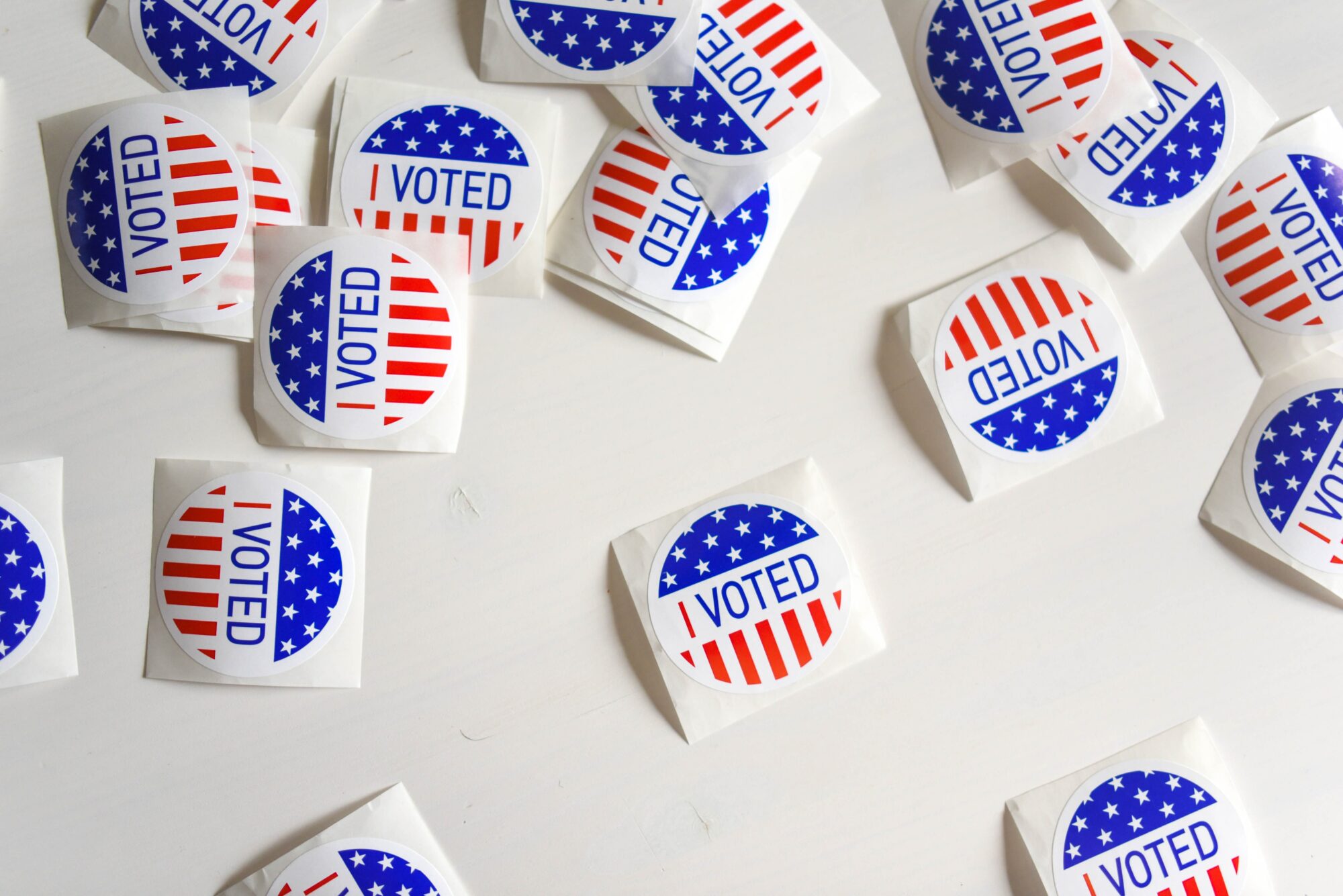As the U.S. navigates a historic election through a global pandemic, economic crisis, and systemic racial injustice, voters are faced with challenging issues to address on the ballot. Bike & Build tapped on Justin Villere from Committee of Seventy, Philadelphia’s oldest good government group, to discuss making sure your vote counts and voting for affordable housing in the 2020 election.
Justin Villere is the Managing Director for the Draw the Lines project at the Committee of Seventy. Seventy, a nonpartisan nonprofit organization, works for representative, ethical, and effective government in Philadelphia & Pennsylvania. This includes working to ensure that every eligible person who wants to cast a ballot is able to do so.
Justin previously served as the Director of Operations and Outreach at Bike & Build, and he’s an alum of Providence to Seattle 2009. Justin is a passionate advocate for the rights of all Americans to vote.
Questions about making sure your vote is counted? Please don’t hesitate to give him a shout! [email protected].
What are the top pieces of information voters should know about how to vote and ensuring their vote is counted? Are you aware of national resources for people to check on the status of mail in voting in their state and region?
Every state runs its elections differently. It’s common practice for each state to have an online portal to walk you through the steps you need to take to cast your ballot. In Pennsylvania, for example, our Department of State has a one-stop shop where I can track my mail-in ballot from when my application was received, then mailed to me, received by them, and finally counted. Many other states are doing this too.
Starting with the basics, make sure you are registered to vote in the state where you live. vote.org is a good place to start. States have different deadlines and websites. Yes, unfortunately in some states the deadline for registration has already passed.
Then, make a plan for how you are going to vote. Many states offer in-person early voting, which is basically the same as voting at the polls on Election Day. Check with your county board of elections for these locations and hours of operation.
A record number of people are casting ballots by mail this year. VOTING BY MAIL IS PERFECTLY LEGITIMATE. States like Colorado, Washington, and Oregon have been running their elections by mail for years (with very very very few instances of fraud). Again, each state has different deadlines for requesting a mail-in ballot. The USPS has recommended that voters leave at least 7 days in advance of Election Day if you are dropping your ballot in the mail. However, due to several recent court rulings that could disenfranchise voters whose ballots arrive after Election Day, our organization is now recommending to return your mail-in ballot in person if your state allows. Otherwise, make plans to head to the polls next Tuesday. Either way, get on it now.
Rather go to the polls on Election Day and get that “I Voted” sticker? A few tips:
- States have different hours for their polls, so make sure to check what yours are. Identify the best time in your schedule in advance and then block it off in your calendar.
- Ask your employer to support your right to vote by giving you time off if necessary.
- Be ready to wait in line.
- Wear a mask and stay socially distanced!
- And be sure to thank the poll workers, who are putting their personal health on the frontlines on Election Day.

When thinking about supporting Affordable Housing initiatives through their vote, what are some other issues/policies that voters should look for in a candidate’s platform that could impact Affordable Housing?
It’s tremendously important to vote in the down-ballot races as well. There are races for the U.S. Senate in 34 states (and two seats are open in Georgia!). Whichever party controls the Senate will have a major say in any federal legislation that passes over the next two years. Of course, all 435 seats in the U.S. House of Representatives are also up for election.
Every state has different statewide offices to be voted on. There are very few competitive governor’s races on the ballot in 2020. But the thing that I’ll really be interested in are the state legislative races. This year’s elections are going to have an outsized impact on the country for the next ten years, because in 2021, every state redraws its voting districts after the 2020 Census (a process called redistricting).
In the majority of states, this is done by the state legislature. Gerrymandered maps, like what happened in a lot of states in 2011, create elections that are unresponsive to the will of the voters for the next decade. So, pay attention to your state legislative races. (The Princeton Election Consortium has a great primer on this; i.e. which states that donors and volunteers should focus on to prevent either party from gerrymandering next year.)
Many states have very important judicial elections as well. Do your research on the backgrounds of judges up for election. In some states, these judges are listed on the ballot without parties. If so, you can look up endorsements/recommendations from your local newspaper, state Bar associations, or special interest groups that are important to you. If you are voting in-person on Election Day, do this before you go to the polls.
Want to see what your ballot looks like? Vote411 has an impressive tool where you enter your address to get a page that has every race/question on your ballot. And if you’re in Pennsylvania, the organization I work with has a comprehensive voter guide and ballot tool.
Let’s talk more about voting for Affordable Housing. How can citizens vote with affordable housing in mind?
In the presidential race, I would encourage everyone to Google the respective campaign websites, the candidates’ public statements, and the public record to see how each will approach affordable housing during the next term. Donald Trump doesn’t have a specific section on his website devoted to affordable housing. Joe Biden has a section outlining plans to invest in housing.
The affordable housing issue is much broader than a single piece of regulation, but one effort by the president this summer offers a window into his thinking. He rescinded an Obama-era regulation that served to combat discrimination in suburban housing. “I am happy to inform all of the people living their Suburban Lifestyle Dream that you will no longer be bothered or financially hurt by having low income housing built in your neighborhood … Your housing prices will go up based on the market, and crime will go down. I have rescinded the Obama-Biden AFFH Rule. Enjoy!” Trump tweeted. Fair housing advocates like the National Low Income Housing Coalition strongly opposed the move, citing the racial divisiveness of such a statement and policy shift.
Getting away from the presidential race, keep an eye out for referenda and bond issues in your municipality or state. Just beware of NIMBYism (Not In My BackYard), an enemy to affordable housing advocates.
When thinking about supporting Affordable Housing initiatives through their vote, what are some other issues/policies that voters should look for in a candidate’s platform that could impact Affordable Housing?
Affordable housing is laced into so many other issues. We all learned through the Bike & Build AH curriculum that without a stable home, children have more barriers to overcome at school. Multi-unit housing and upzoning is a key strategy in the fight against climate change; and as the effects of climate change worsen, it also impacts housing stock for people in-need. Want to prevent crime and treat mental illness? Make sure those afflicted have a reliable place to sleep at night. And people experiencing homelessness are at significant risk for contracting COVID-19.
If you are casting your vote with improving the country’s affordable housing crisis in mind, it’s worth considering how your candidates will address all of these other issues too.
And frankly, it’s important to elect leaders on the federal, state, and local level that have empathy for the challenges that others are facing, particularly those that might be down on their luck during the pandemic. According to Pew, COVID and the resulting economic crisis at one point cost 15% of all Americans their job. Communities of color are disportionately more likely to die from the virus and to face worsening inequality in our education system. We should expect that elected officials take their duties of public service to all of their constituents seriously, particularly those struggling through the current economic and health crises.
“Voting before or on November 3rd is just the first action of shaping our country the way we want it to look for us and our children.”

What are some small and big ways citizens can hold their representatives accountable after the election and be an advocate for the causes they care about?
Great question. Here at the Committee of Seventy, we like to say that voting is necessary but not sufficient. Democracy is a year-round participatory process, and it only works if you stay engaged. We promote the 5 Habits of Effective Citizenship. Voting is just the first one. On that front, political science shows that people are more likely to vote if they are invited to do so by a friend they know and trust. So make sure all of your friends and family are preparing to cast their ballots.
The other habits of effective citizenship: inviting diverse perspectives; choosing your news sources wisely; educating yourself on how government works in your area; and perhaps most importantly, act. Publish your opinions (and not just on social media). Join a community group or civic association. Donate to candidates and causes you support. And run for office yourself! The 2018 midterm election saw a record number of women candidates who were motivated to run after the results of 2016, and a lot of them won too.
There are now a lot of Bike & Build babies out there. Before COVID, I found it very important to bring my kids to the polling place and into the booth with me so they can see this vital act of democracy in action. Now, during the pandemic, I sat down with Reese, my three year-old, and we filled out my ballot at the kitchen table. Let’s raise the next generation of super voters!
One last thought: on a podcast this summer with Ezra Klein, Ta-Nehisi Coates cautioned voters to not think that we have to fall in love with a candidate. On the contrary. Voting is like taking out the trash, or brushing our teeth. It’s just a part of civic hygiene, with so many other duties that we should carry out. “The question isn’t how much of my own personal politics do I see in this person, so much as how much do I think this person can actually be influenced by my politics and the people around me.”
Voting before or on November 3rd is just the first action of shaping our country the way we want it to look for us and our children.

